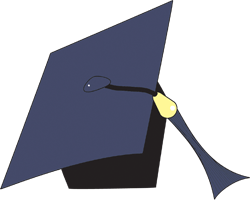
 Enhancing Undergraduate Student Success: An Initiative to Improve Student Learning in Introductory U.S. History and Other Disciplines
Enhancing Undergraduate Student Success: An Initiative to Improve Student Learning in Introductory U.S. History and Other Disciplines
Jeff Janowick, Lansing Community College
Aaron McArthur, Arkansas Tech University
Session Abstract
In the fall of 2013, 13 colleges and universities from across the United States joined with the non-profit John N. Gardner Institute for Excellence in Undergraduate Education to pilot the Gateways to Completion process. Gateways to Completion is a structured, three-year process that allows faculty and staff from the participating institutions to study and subsequently alter their approaches to teaching, support efforts, and/or policies for courses that enroll large numbers of their students. The courses are selected because they have historically served as barriers to future student success as measured by grades as well as retention and completion rates.
The participating institutions picked the courses to work on without consulting with the other colleges or universities involved in the effort. Using local data, knowledge, and expertise, many of the institutions selected entry-level U.S. History courses as an important area for improvement, along with other courses. The challenges of introductory courses are not necessarily unique to history, and faculty and staff work on this project benefits from conversation across disciplines.
The roundtable discussion will feature faculty from history and other disciplines at the Gateways to Completion participating institutions discussing with attendees their individual and collective work to improve undergraduate teaching and learning. Questions to be addressed include:
- What makes introductory history a high-risk course for undergraduates?
- How are the challenges in other introductory “gateway courses” similar to those in introductory history? How are they different?
- What are the approaches to enhancing student success and learning in other disciplines?
- Can any of these approaches be applied to history?
- What innovative practices are session attendees using to enhancing student learning and success in their history courses?
The discussion is intended to provide reflection on and to shape efforts to improve student learning and success in introductory history courses, while offering attendees an overview of the broader context for introductory courses in other disciplines.
